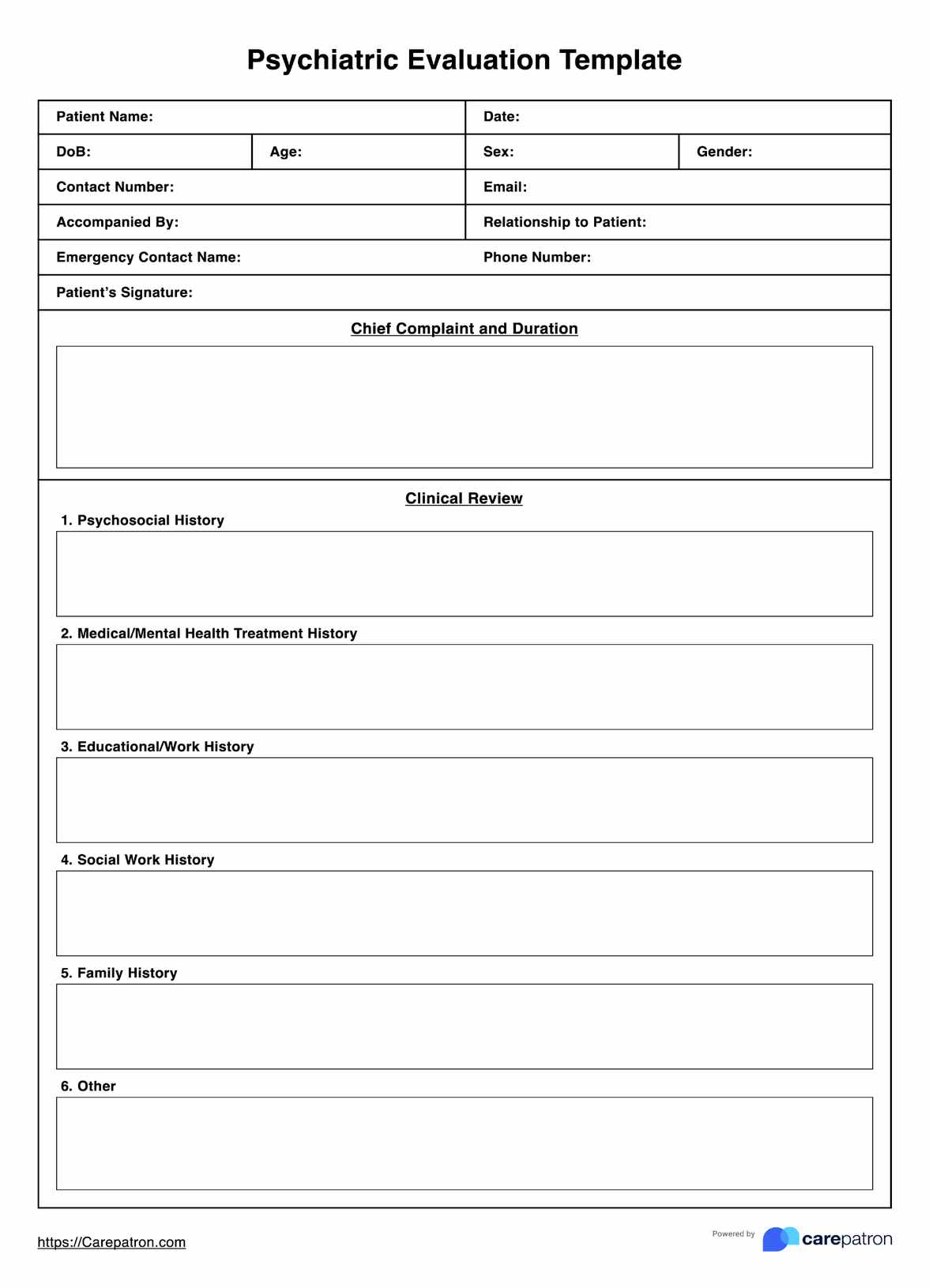Individuals can start by scheduling an appointment with a mental health professional, such as a psychiatrist, psychologist, or licensed therapist. During the assessment, the clinician will comprehensively evaluate the individual's mental health history, symptoms, and current concerns. They may use standardized assessments, interviews, and observations to formulate a diagnosis and develop a treatment plan tailored to the individual's needs.

Psychiatric Evaluation Template
Diagnose mental health problems and disorders with the help of our psychiatric evaluation template. Click here for a guide and a free template copy!
Psychiatric Evaluation Template Template
Commonly asked questions
The perception of the hardest mental illness to live with can vary among individuals, as mental health conditions affect people differently. Conditions like schizophrenia, bipolar disorder, and severe depression can be particularly challenging due to their impact on daily functioning, relationships, and overall quality of life. Each person's experience with mental illness is unique, and the level of difficulty can depend on various factors, including symptom severity, access to treatment, and social support.
While some mental illnesses can be effectively managed and symptoms reduced with treatment, there is no universal cure for mental illness. Mental health conditions are often chronic and may require ongoing treatment, such as therapy, medication, lifestyle changes, and support services. Recovery is possible, and many individuals can lead fulfilling lives with proper management and support.
EHR and practice management software
Get started for free
*No credit card required
Free
$0/usd
Unlimited clients
Telehealth
1GB of storage
Client portal text
Automated billing and online payments











